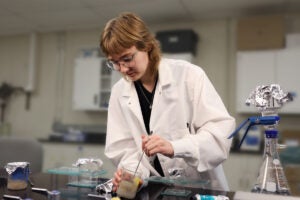AUSTIN, Texas—Dr. Alejandro Ibarra of the Instituto Technologico y de Estudios Superiores de Monterrey (popularly known as Monterrey Tech) has been named as the first holder of an endowed chair of the Center for the Study of Western Hemispheric Trade at The University of Texas at Austin.
The endowment, approved by the U.S. Customs Agency of the U.S. Treasury in 1998, enables UT Austin to invite to campus each year one or more specialists in the field of trade, investment and economic development in the Western Hemisphere. The visiting specialists can be selected from the policy and business communities as well as academia to come for periods ranging from two or three weeks to a full semester to give a series of lectures or full courses. They will be available to consult with faculty and students during the period of their residence on campus.
The Center for the Study of Western Hemispheric Trade is a consortium, initially federally funded, consisting of UT Austin, UT El Paso, Texas A&M University and Texas A&M International University. For UT Austin, representation in the consortium is handled through the Mexican Center of the Institute for Latin American Studies (ILAS).
For the spring 2000 semester, Ibarra will teach economics/LAS 255 (Economic Problems and Policies in Latin America) at the undergraduate level. He also will teach a graduate seminar titled Economics/LAS 391K, on the new regulatory systems that are emerging in Latin America. The latter deals with a crucial, but often overlooked, aspect of restructuring wherein failures of policy can produce such devastating results as the financial crises that gripped Mexico, Brazil, Venezuela, Ecuador and, in a lesser measure, Argentina in recent times.
Ibarra also is a member of one of Mexico’s negotiating teams for developing a Free Trade Agreement with the European Union and will give a public lecture during the spring on the prospects for the Mexico/EU Federal Trade Agreement. His office will be located in the ILAS in Sid Richardson Hall.
For additional information, contact Carolyn Palaima, Institute of Latin American Studies, at (512) 232-2408.



